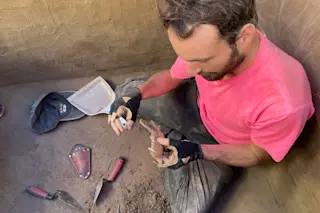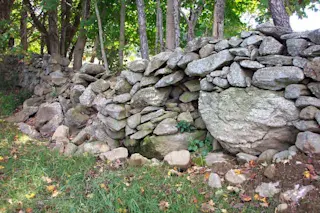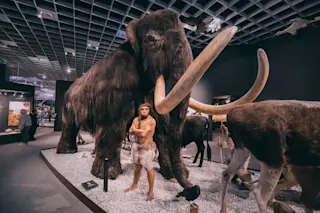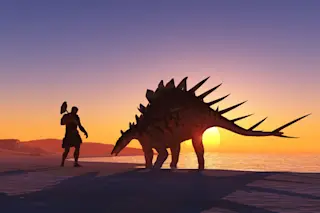The ochre paint found in the abalone shells seems to have been made from a specific recipe.
As archaeologists unearth scattered artifacts from the early years of our species, one of the questions they ask themselves is, when did early humans start thinking and behaving like modern humans? The recent discovery of 100,000-year-old site where paint was manufactured
---equipped with mixing containers and tools---suggests that even very distant ancestors had something of our ability to plan, as well as a basic sense of chemistry. The paint makers, who lived in South Africa 20,000-30,000 years before archaeologists had previously thought such complex thought processes possible, used a specific recipe and brought in ochre, the red mineral, from a whopping 20 kilometers away before mixing it in abalone shells with melted fat from bone marrow and a fluid that might be urine. Bringing ochre all that way indicates forethought and planning, the ...













